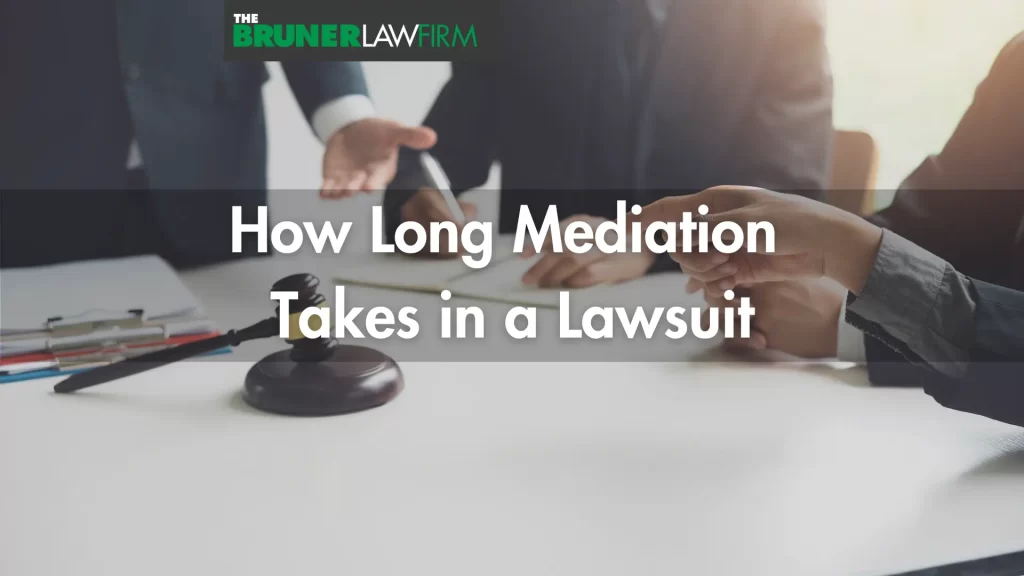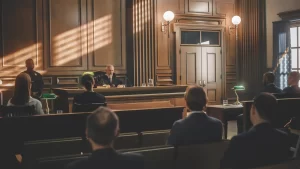
Going to mediation is one option for resolving a personal injury dispute without a lawsuit. Typically, opposing parties agree to mediation because they want to resolve the case outside of court. It might be their last chance to settle before proceeding to trial.
The timeframe of mediation depends on multiple factors, including the complexity of the case and each side’s willingness to compromise. If successful, the plaintiff should receive a settlement check from the insurance company to compensate for their losses. If mediation fails, preparing for trial is often the next step for the parties.
An Overview of the Mediation Process
Mediation is a form of alternative dispute resolution. This process allows the parties to personal injury lawsuits to come together and negotiate a settlement.
The session can last a few hours or all day. Some mediations require multiple sessions to iron out the terms of the settlement agreement.
A mediator leads the meeting but doesn’t have the legal authority to rule on the case. They oversee the process and facilitate productive conversations between opposing sides. They can suggest possible solutions but can’t enter judgments or decide for the parties.
The steps involved in mediation typically include the following:
- Introductions – The mediator will introduce themselves and confirm everyone attending knows each other’s roles. They will also explain how mediation works and what they will do to manage the process.
- Opening statements – After introductions, the plaintiff’s attorney and defense lawyer can make their opening statements to explain the facts of the case and argue their client’s position.
- Identify the issues – The mediator will identify the problems involved in the dispute and determine the ones preventing a successful negotiation.
- Negotiating a settlement – Each side can propose a settlement for the mediator to communicate to the other. Negotiations can go back and forth multiple times before agreeing to a number. The mediator can point out the strengths and weaknesses in each party’s case and advise whether settling might be better than going to trial.
- Sign an agreement – If mediation is successful, both parties will sign a settlement agreement the mediator drafts. The plaintiff’s lawyer can file it with the court for a judge to review and close the matter.
How Long Mediation Can Last
Mediation can take a few hours or multiple days. The duration will depend on circumstances, such as:
- The number of parties to the case – Mediation can take longer when there are more parties involved in the lawsuit. That’s because each person has priorities and interests to consider during negotiations.
- Mediator availability – Some mediators have busy schedules. Picking a date that works for everyone can be challenging.
- The complexity of the case – Some cases are more complex than others. That can extend the timeline of mediation. The complexity affects the number of legal disputes both sides must address and work through to try to settle.
- Timing of the session – Mediation must occur at a time in the lawsuit process that is most suitable for everyone. That means it shouldn’t happen too early or too late in the process. If scheduled early in the case, either party will be unlikely to want to settle because they haven’t had a chance to review all the evidence yet.
- Willingness to compromise – Both sides must willingly negotiate to reach a mutually beneficial arrangement. If one or both parties don’t want to compromise to resolve the issue, mediation can take a while and will likely end without a positive result.
What Happens After Mediation?
The mediator will draft a written agreement for both parties to sign if the mediation ends with a settlement. After filing the signed agreement with the court, the defendant’s insurance company must mail the agreed-upon settlement check.
Your lawyer will receive the check and disburse the funds accordingly. The final check will likely be less than the settlement amount. Your lawyer must use a portion of your compensation to cover their legal fees and costs, pay your medical providers for the treatment you sought, and pay case-related expenses.
What Happens After Mediation Fails?
Your attorney will advise the judge of the failed mediation if you can’t settle. The judge will set a trial date, and both sides must start preparing for their days in court.
How Long After Mediation Can You Go to Court?
 You will go to court on the date the judge sets after conferring with the parties for their availability. They will set the trial date. The duration between mediation and court proceedings is different for everyone. It depends on the judge’s availability, the size of the case, and other factors.
You will go to court on the date the judge sets after conferring with the parties for their availability. They will set the trial date. The duration between mediation and court proceedings is different for everyone. It depends on the judge’s availability, the size of the case, and other factors.
Get Help with Your Personal Injury Lawsuit
You should only negotiate a settlement with an experienced personal injury attorney by your side. Although it might seem straightforward, mediation requires skill and experience to reach a favorable result.
The Bruner Law Firm can protect your rights and fight for the maximum compensation you deserve. Call us at (850) 243-2222 for a free consultation to discuss the available options with one of our experienced personal injury lawyers.
Related Posts:







